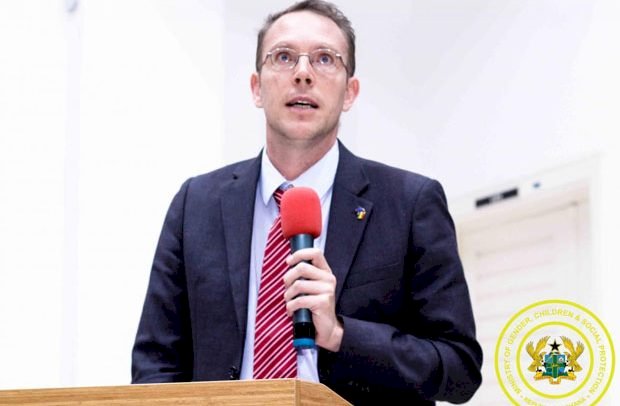€10m EU Support For Ghana’s Helpless

Deputy head of the European Union Mission to Ghana, Pieter Smidt Van Gelder, says the EU will also provide an additional €10 million euros to support Ghana’s most vulnerable populations. This is intended to cushion them against increasing global food security crisis engineered by Russia’s invasion of Ukraine. According to Mr. Van
Gelder, “These new funds will support families to grow crops, generate income and improve food availability on local markets. The EU support will also make Ghanaian farmers more resilient to crisis, by promoting sustainable food production and strengthening integration into national and regional food value chains.” He also said
the allotment will support the sustainable development of a number of agribusiness value chains, including shea, soybean, beekeeping, and vegetables. Furthermore, he said, “This will complement efforts by the Ghanaian government to mitigate further increases in poverty, hunger, and malnutrition in vulnerable areas affected by
high prices of food, fertiliser, and fuel.” Referring to the package as a special measure, Dr. Owusu Afriyie Akoto, Minister of Food and Agriculture, said “This will strengthen our support to address our food security needs while contributing to sustainable and resilient food systems.” Abena Osei Asare, Deputy Minister of
Finance, also commented: “We as a country have been faced with a number of challenges in recent times. The COVID-19 pandemic and lately Russia-Ukraine war have particularly had worrying effects on Ghana’s economy. The conflict has resulted in a rapid increase in the prices of food, fuel and fertiliser, with its attendant
consequences on the country’s foreign exchange reserves used to purchase commodities imported for public consumption as well as inputs for industries. Food inflation continues to contribute highly to overall inflation. Ghana’s inflation for September 2022 stood at 37.2%, with food inflation contributing largely
at 37.8%.” The support, earmarked for the Northern part of Ghana, is expected to ensure more economically sustainable and inclusive food systems, reinforced environmental sustainability of food systems, enhanced social sustainability and gender responsiveness of food systems, (including food and nutrition security) and improved governance and institutional sustainability of food systems.







